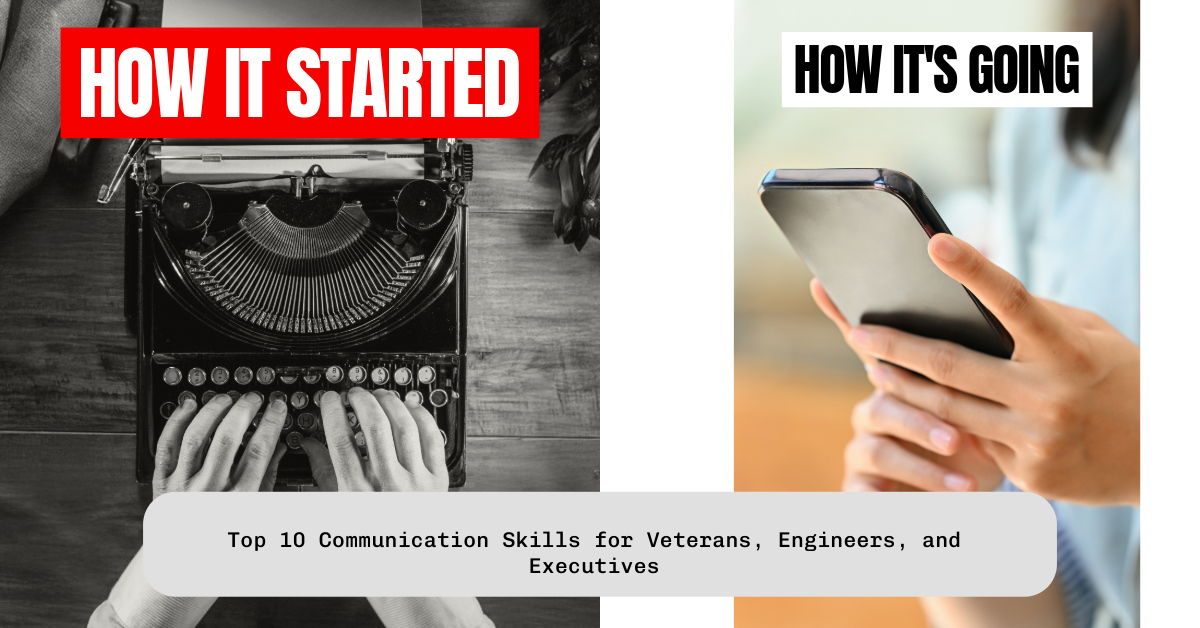In today’s interconnected world, empathy stands out as a vital skill that can bridge gaps, foster collaboration, and drive innovation. For veterans transitioning into engineering roles and engineers aspiring to leadership positions, empathy is essential for understanding diverse perspectives, building strong relationships, and leading effectively. This article explores the importance of empathy, its benefits, and practical strategies to develop this skill, with a focus on coaching veterans and engineers.
Understanding Empathy
Empathy involves the ability to understand and share the feelings of others. It requires active listening, open-mindedness, and a genuine interest in others’ experiences and perspectives. For veterans and engineers, who often work in technical and high-pressure environments, empathy can significantly enhance their ability to connect with colleagues, clients, and stakeholders.
The Importance of Empathy for Veterans
Veterans bring a wealth of experience and leadership skills to the civilian workforce, but transitioning from a military to a civilian career can present communication challenges. Empathy helps veterans effectively navigate these challenges by fostering understanding and collaboration with colleagues from diverse backgrounds.
Key benefits of empathy for veterans include:
- Building Trust: Demonstrating empathy fosters trust and respect, essential for effective teamwork and leadership.
- Enhancing Adaptability: Understanding and valuing diverse perspectives aids in adapting to new environments and cultural norms.
- Facilitating Transition: Empathy helps veterans navigate the nuances of civilian work environments, facilitating a smoother transition.
The Role of Empathy in Engineering
Engineers are often tasked with collaborating on complex projects and presenting technical information to diverse audiences. Empathy is a critical skill that enhances their ability to understand clients’ needs, collaborate effectively, and lead teams.
Key benefits of empathy for engineers include:
- Improved Collaboration: Empathy fosters a collaborative work environment and enhances team dynamics.
- Effective Leadership: Engineers aspiring to leadership roles can use empathy to inspire and motivate their teams.
- Enhanced Client Relations: Understanding clients’ perspectives and needs leads to better project outcomes and customer satisfaction.
Strategies for Developing Empathy
- Practice Active Listening: Focus on truly understanding what others are saying without interrupting. Reflect on their words and ask clarifying questions to ensure comprehension.
- Be Open-Minded: Approach interactions with an open mind and a willingness to consider different perspectives. Avoid making assumptions or judgments.
- Put Yourself in Others’ Shoes: Try to see situations from others’ viewpoints. Consider their feelings, motivations, and challenges.
- Show Genuine Interest: Demonstrate a genuine interest in others’ experiences and perspectives. Ask thoughtful questions and engage in meaningful conversations.
- Be Mindful of Non-Verbal Cues: Pay attention to body language, facial expressions, and tone of voice. These cues provide valuable insights into others’ emotions and intentions.
- Practice Empathy in Everyday Interactions: Look for opportunities to practice empathy in everyday interactions, whether in the workplace or in personal relationships.
- Seek Feedback: Ask for feedback from colleagues or mentors on your empathetic communication skills. Use their input to improve and grow.
Coaching Veterans and Engineers in Empathy
Coaching programs tailored for veterans and engineers can play a pivotal role in developing empathy. These programs should focus on:
- Customized Training: Addressing the unique communication challenges faced by veterans and engineers through targeted workshops and exercises.
- Mentorship Opportunities: Pairing participants with experienced mentors who can provide guidance and feedback on empathetic practices.
- Real-World Scenarios: Incorporating simulations and role-playing exercises that mimic real-world situations to practice empathy in a safe environment.
- Continuous Feedback: Providing ongoing feedback and support to reinforce learning and encourage skill development.
Conclusion
Empathy is a powerful tool that can transform the way veterans and engineers communicate and lead. By mastering this skill, they can enhance collaboration, improve project outcomes, and drive innovation in their respective fields. As the demand for effective communication continues to grow, investing in empathy will undoubtedly yield significant returns for individuals and organizations alike.
For veterans transitioning to engineering roles and engineers aspiring to leadership positions, empathy is not just a skill—it’s a pathway to success. By embracing this practice, they can unlock their full potential and make a lasting impact in their careers and communities.
By focusing on empathy, veterans and engineers can enhance their communication abilities, paving the way for successful transitions and leadership opportunities. Whether you’re a veteran entering the engineering field or an engineer looking to advance your career, mastering empathy is a crucial step toward achieving your goals.
